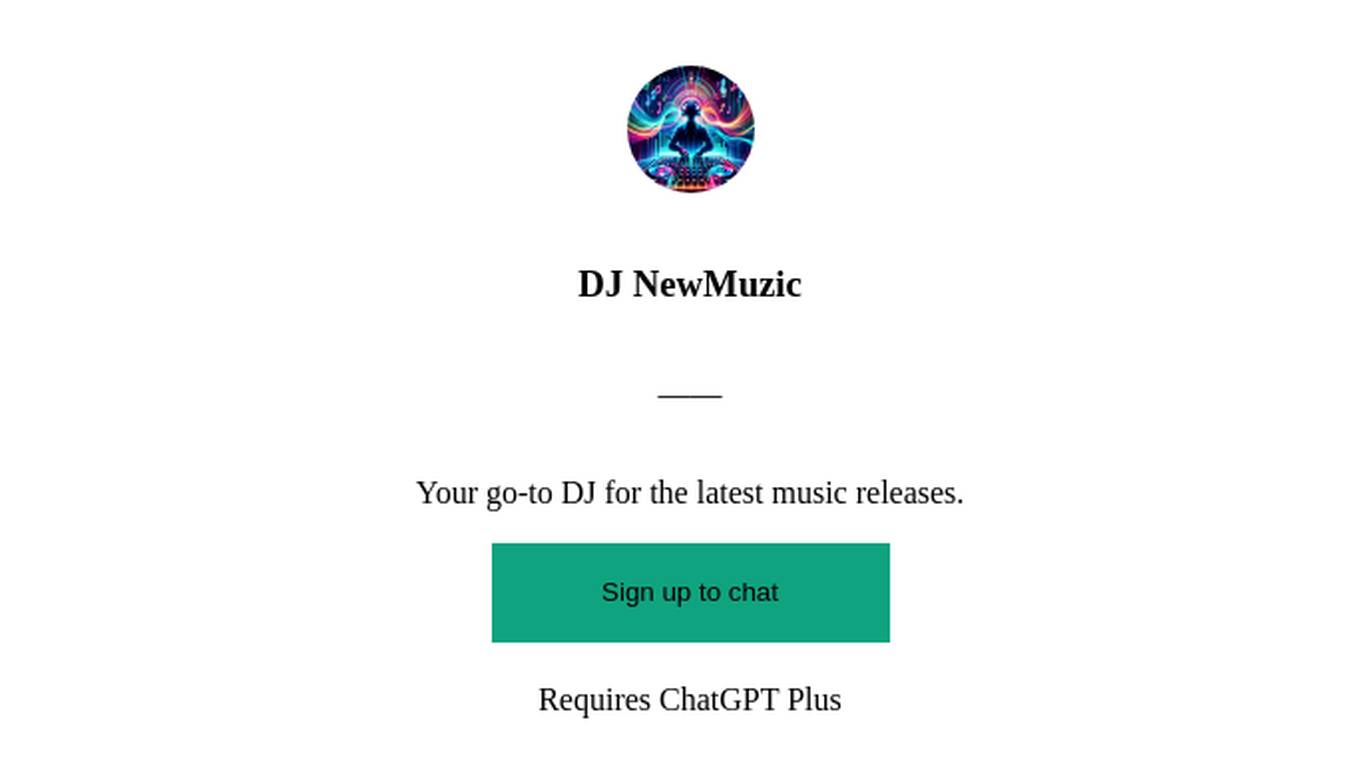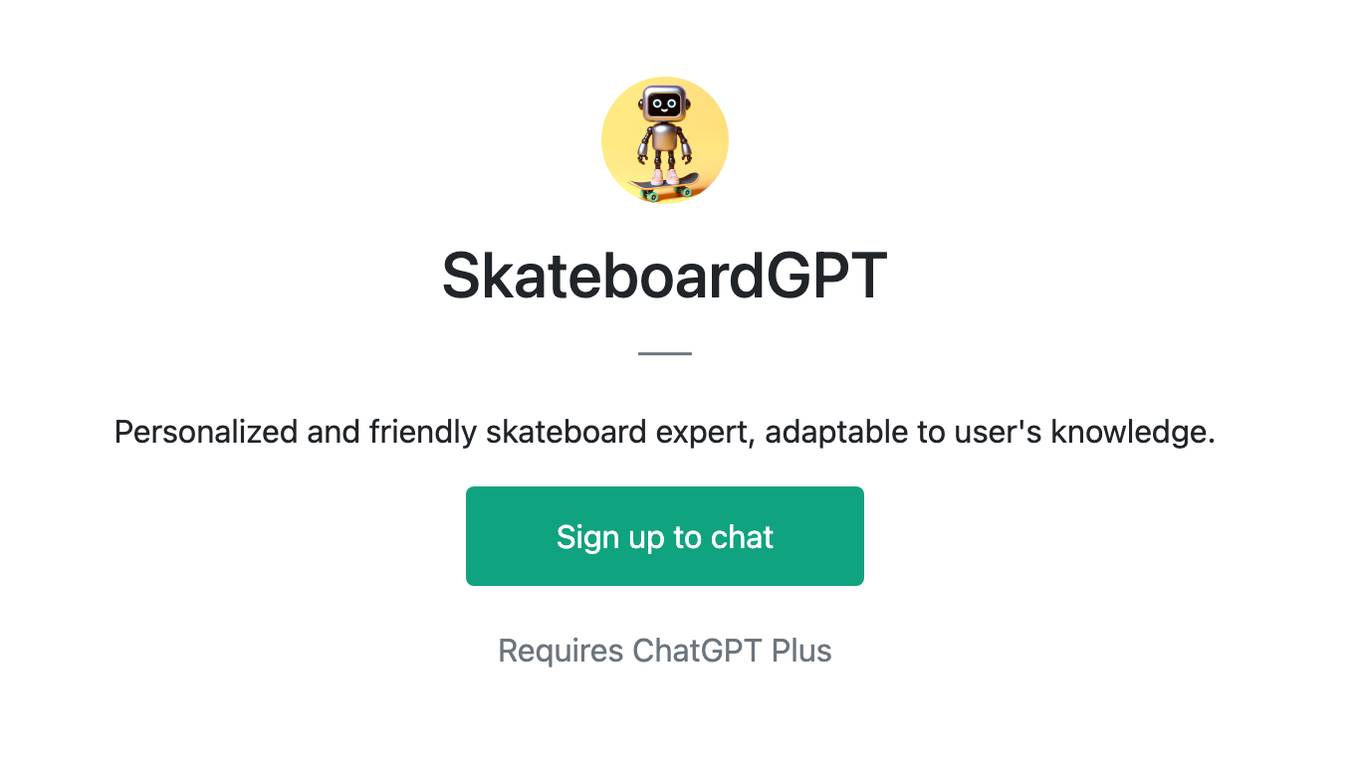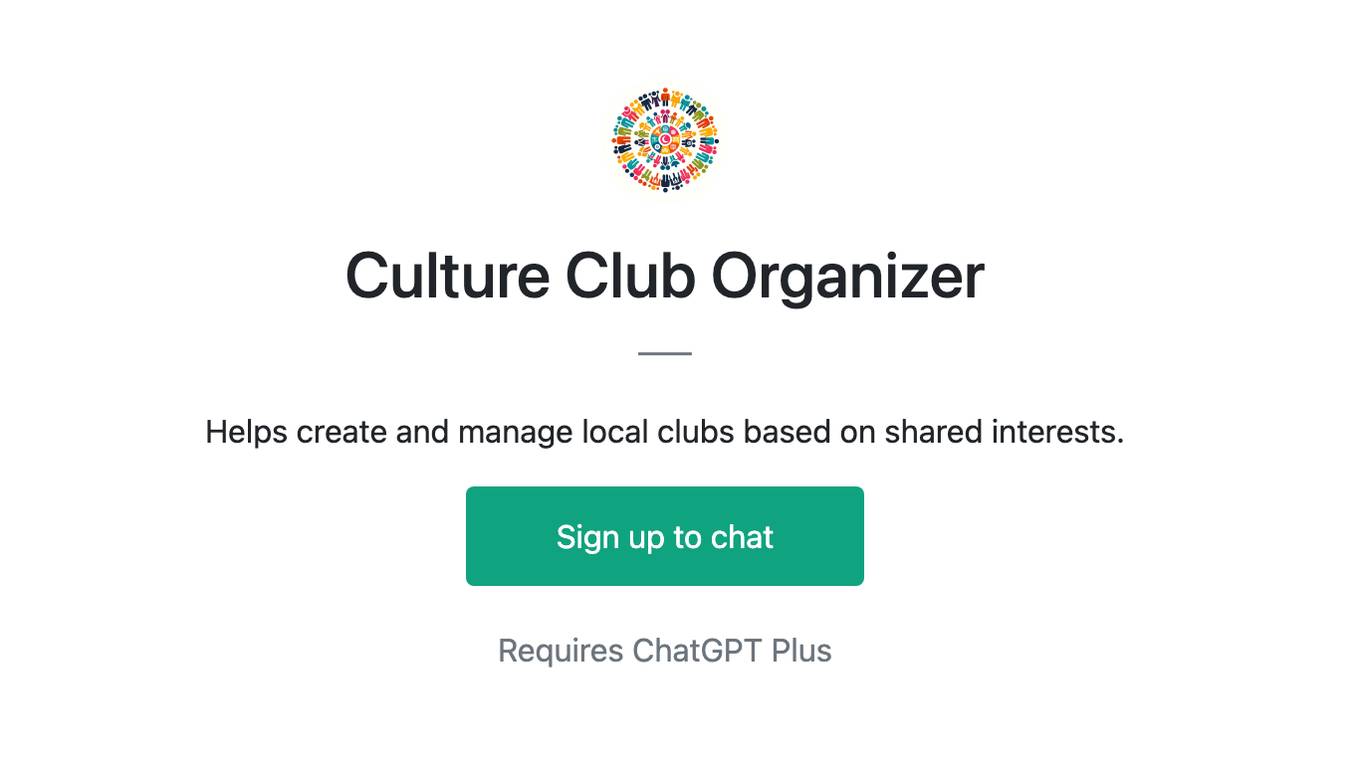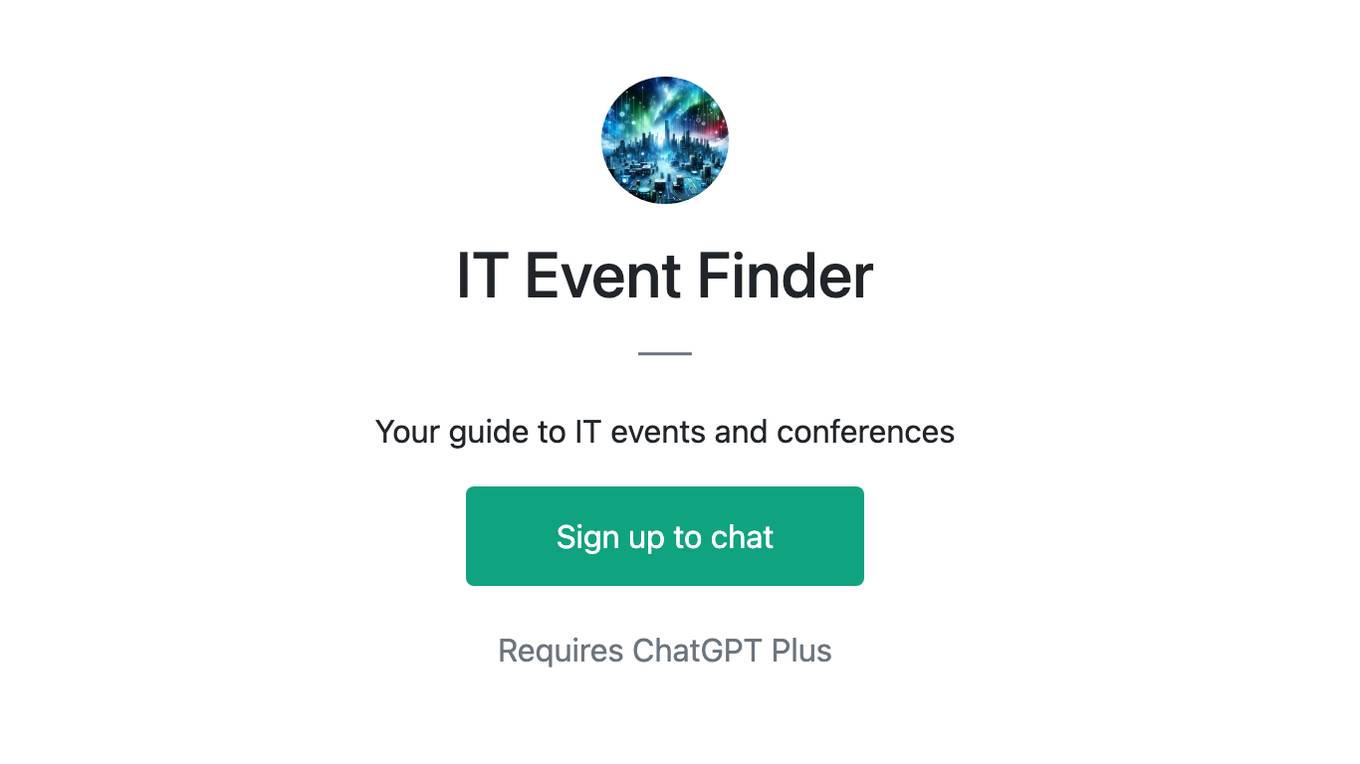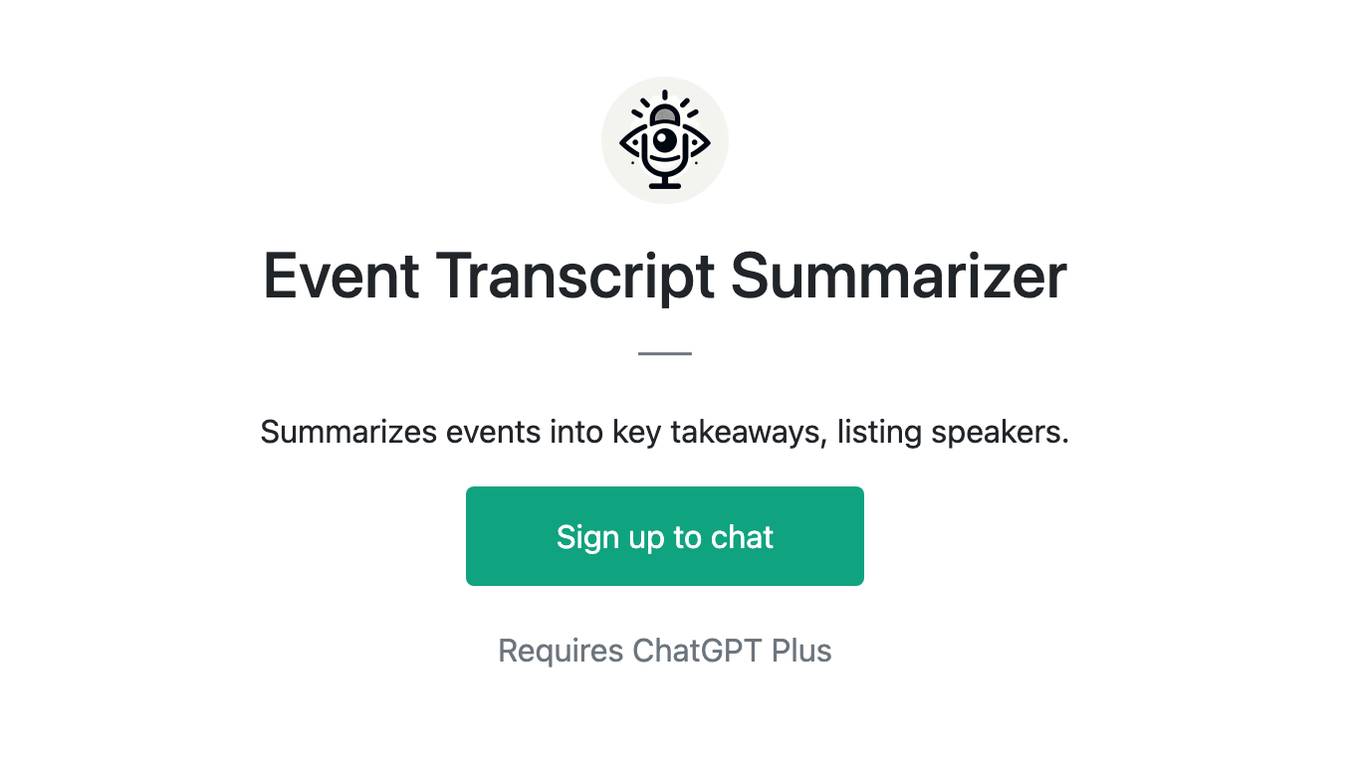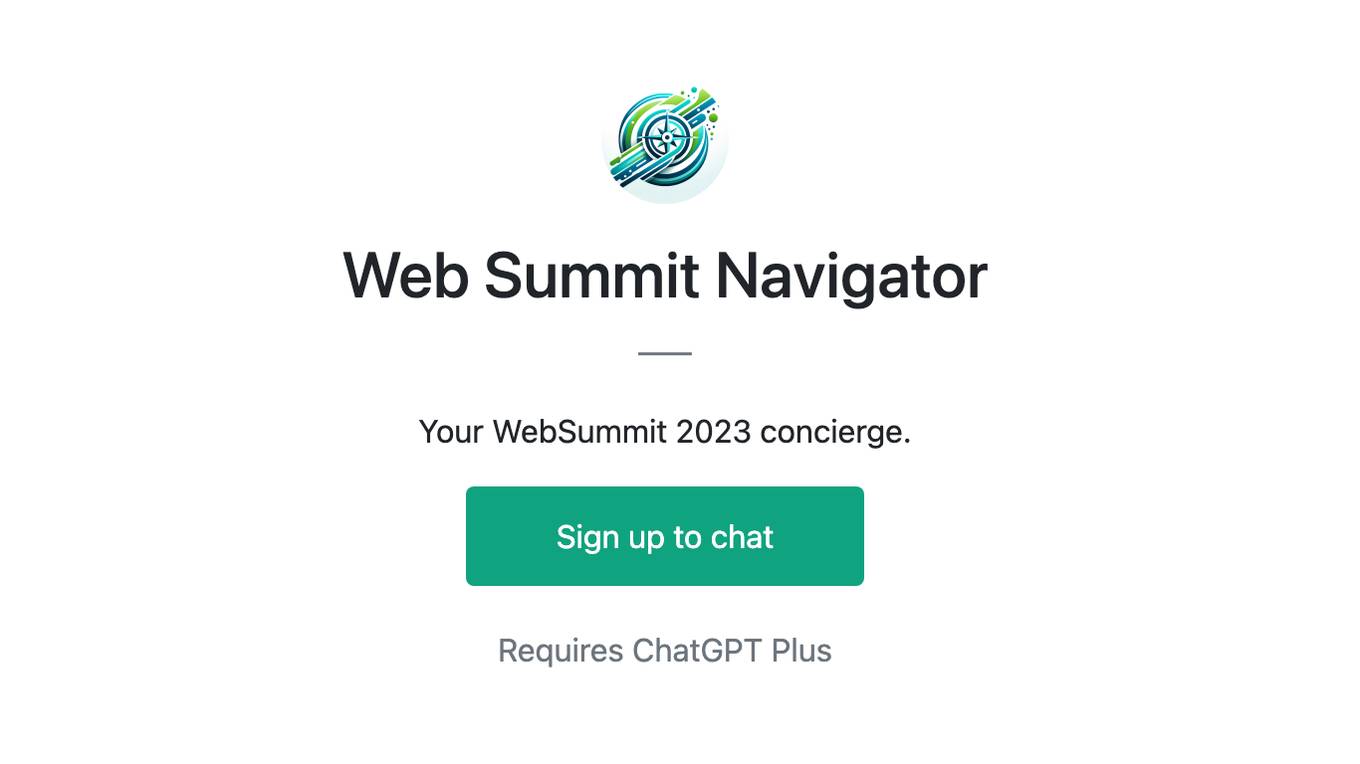Best AI tools for< Event Organizer >
Infographic
20 - AI tool Sites
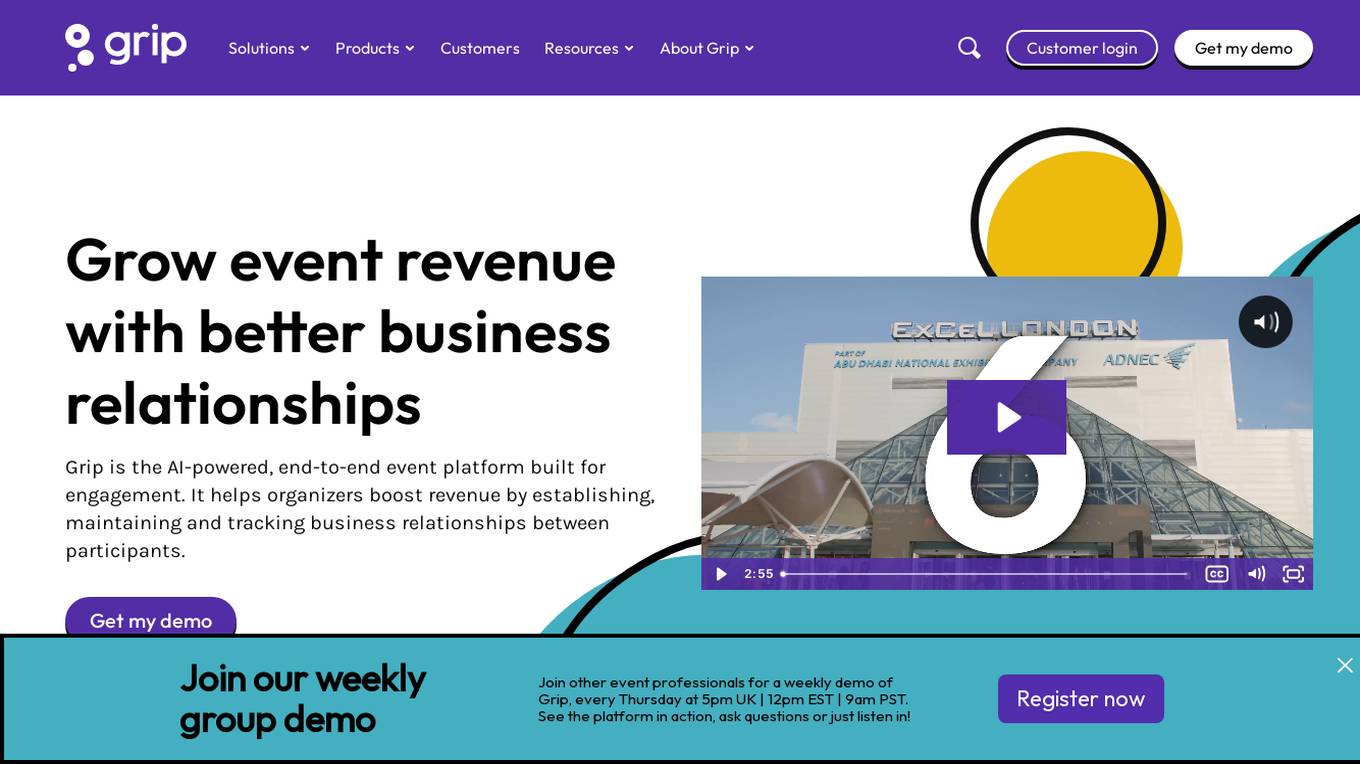
Grip
Grip is an AI-powered event platform designed to enhance business relationships by facilitating networking and scheduling meetings. It offers a wide range of features to streamline event management, increase engagement, and boost revenue. With advanced matchmaking capabilities and intuitive event apps, Grip aims to provide a transformational event experience for organizers and participants alike.
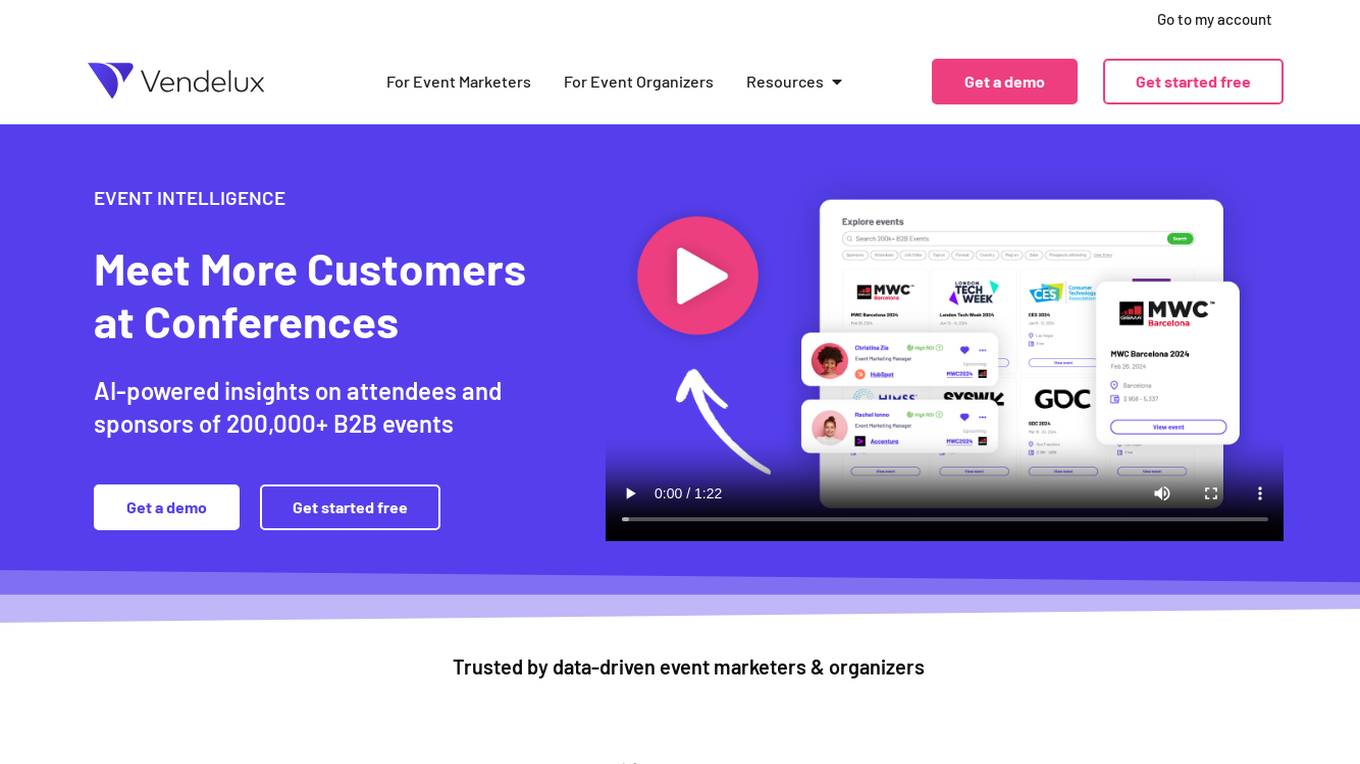
Vendelux
Vendelux is an AI-powered event intelligence platform that provides insights on attendees and sponsors of over 200,000 B2B events. It offers event marketers and organizers data-driven solutions to maximize event ROI, make informed decisions on event sponsorships, and book more qualified meetings.
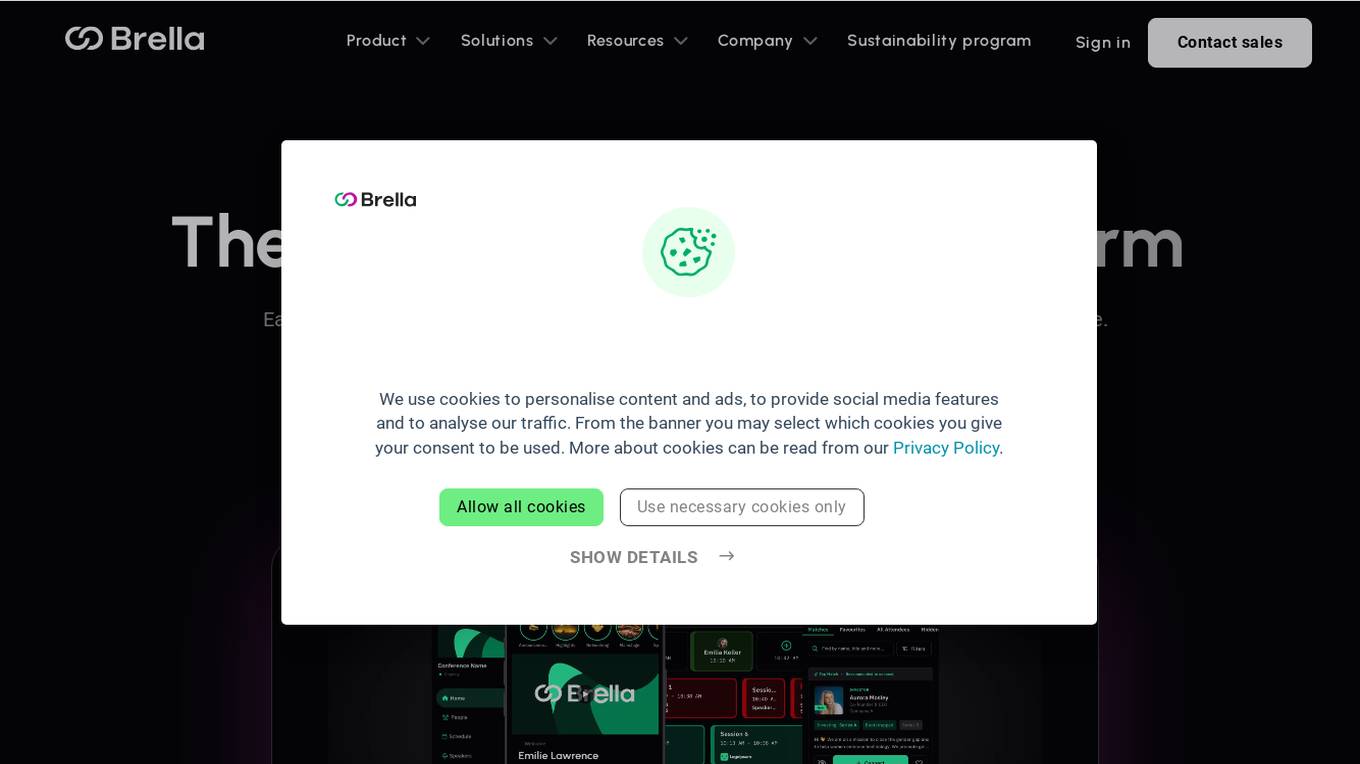
Brella
Brella is a leading event and networking platform that offers an easy-to-use event app and management platform with built-in artificial intelligence. It provides customizable mobile apps, AI matchmaking and networking, and integration with various tools. Brella aims to unlock the full potential of events by offering premium features and services to event organizers, attendees, and sponsors.
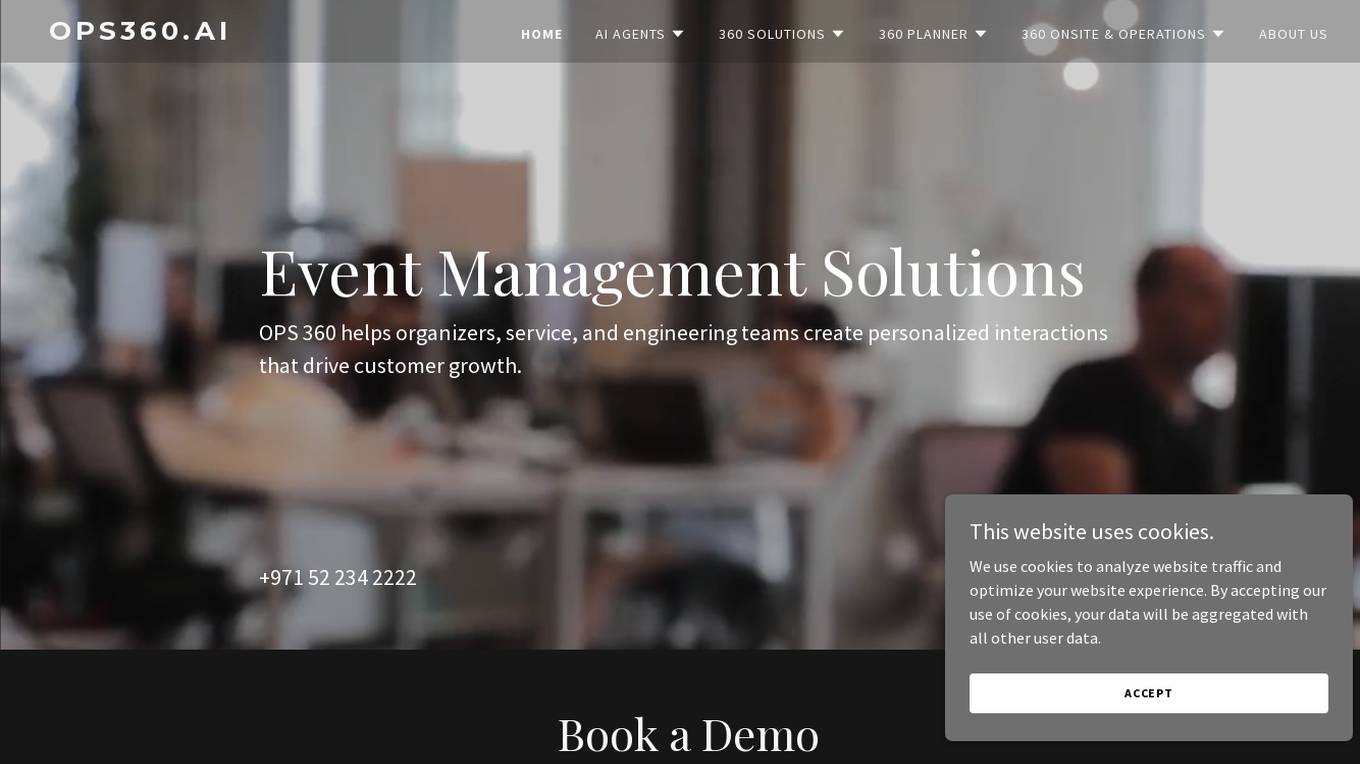
OPS 360
OPS 360 is an AI-powered event management software that offers a comprehensive suite of solutions for organizing virtual, hybrid, and in-person events. The platform enables event organizers, service providers, and engineering teams to create personalized interactions that drive customer growth. OPS 360 simplifies event planning, enhances attendee engagement, and maximizes revenue generation through its innovative features and capabilities.
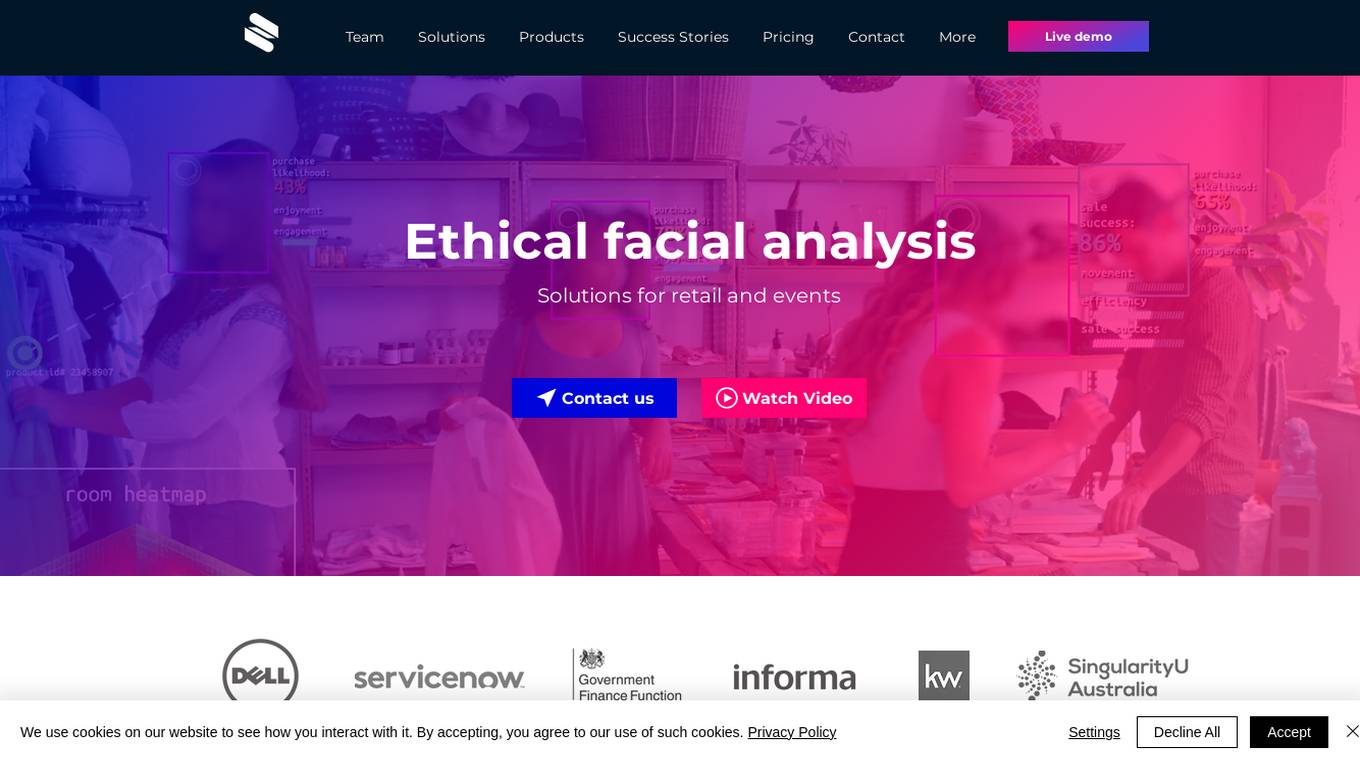
Zenus AI
Zenus AI is a behavioral analytics tool for events and retail, offering facial analysis and custom solutions for event organizers, retail brands, and exhibitors. The tool provides insights such as demographics, sentiment analysis, and behavioral tracking with 95% accuracy without collecting personal data. It helps businesses understand consumers, attract more exhibitors, and improve visitor experience through AI-powered solutions.
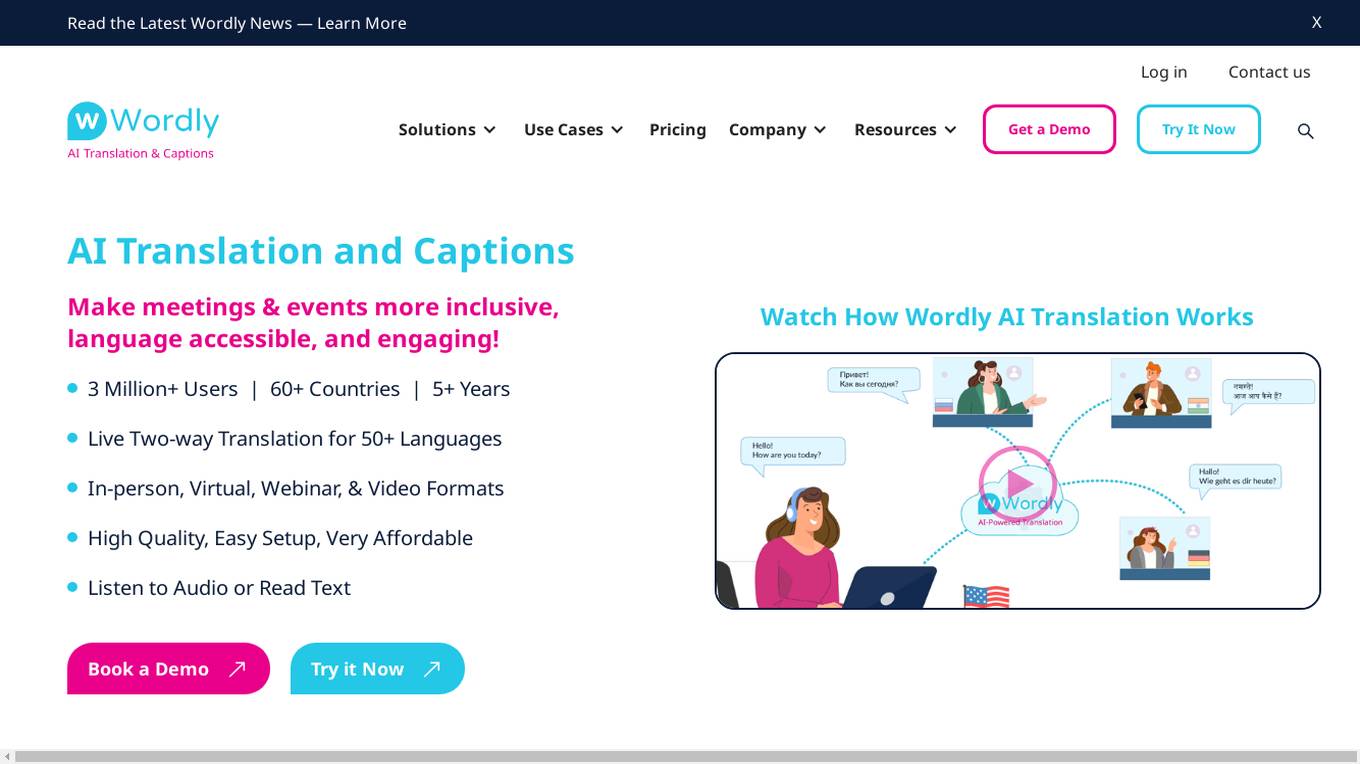
Wordly AI Translation
Wordly AI Translation is a leading AI application that specializes in providing live translation and captioning services for meetings and events. With over 3 million users across 60+ countries, Wordly offers a comprehensive solution to make events more inclusive, language accessible, and engaging. The platform supports two-way translation for 50+ languages in various event formats, including in-person, virtual, webinar, and video. Wordly ensures high-quality translation output through extensive language testing and optimization, along with powerful glossary tools. The application also prioritizes security and privacy, meeting SOC 2 Type II compliance requirements. Wordly's AI translation technology has been recognized for its speed, ease of use, and affordability, making it a trusted choice for event organizers worldwide.
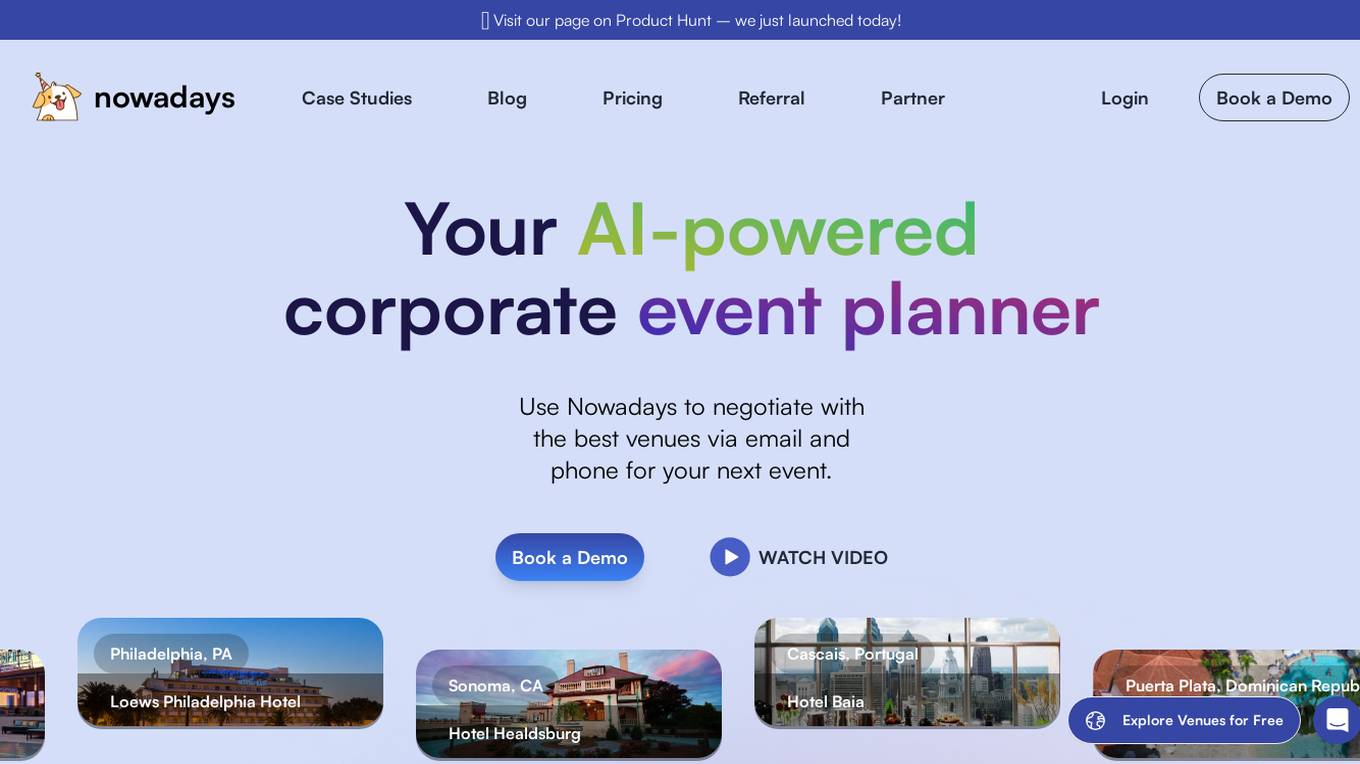
Nowadays
Nowadays is an AI-powered corporate event planner that simplifies event planning by negotiating with the best venues globally via email and phone. It acts as an in-house event planner, considering unique company tastes and needs to secure bids from hotel venues at competitive prices. The platform provides quick response times, operates as an IATA certified AI travel agency, offers unlimited reach for venue search, and saves money through AI negotiations.
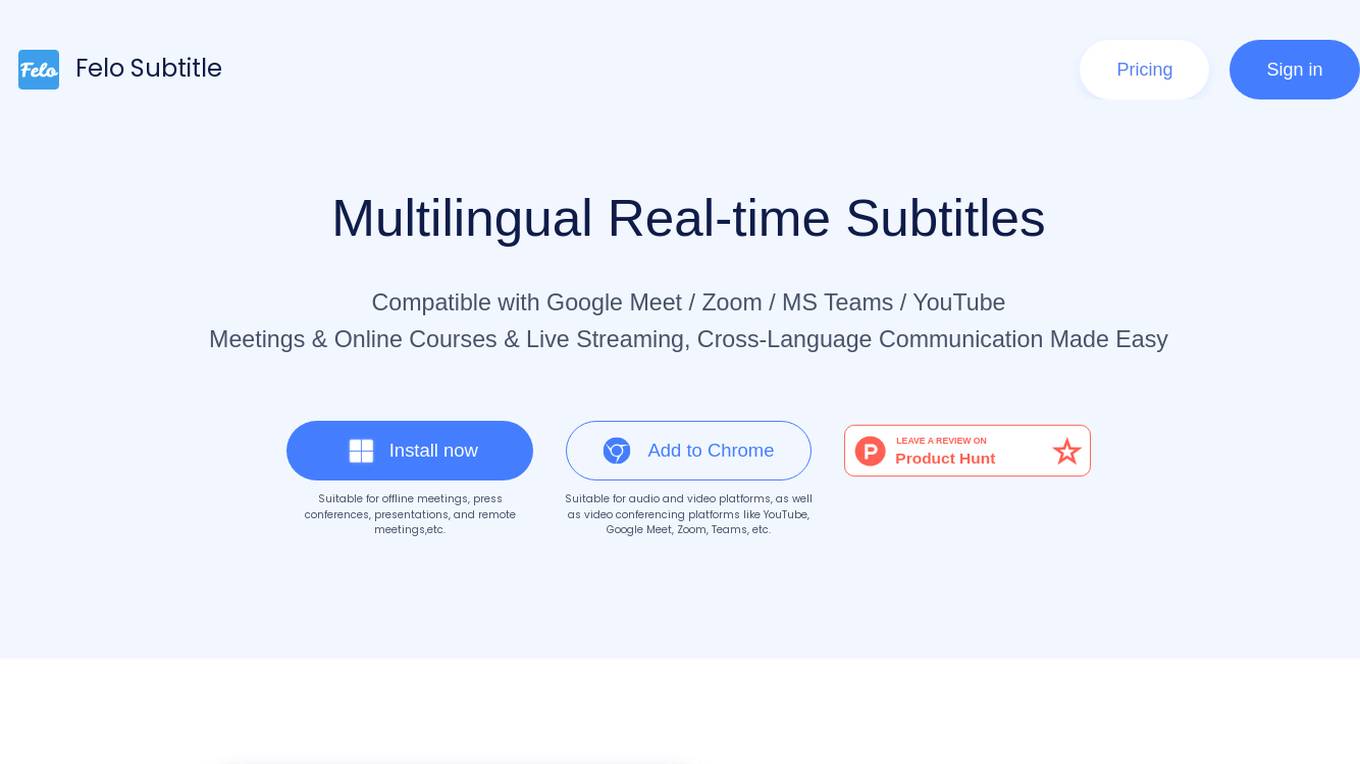
Felo Subtitles
Felo Subtitles is an AI-powered tool that provides live captions and translated subtitles for various types of content. It uses advanced speech recognition and translation algorithms to generate accurate and real-time subtitles in multiple languages. With Felo Subtitles, users can enjoy seamless communication and accessibility in different scenarios, such as online meetings, webinars, videos, and live events.
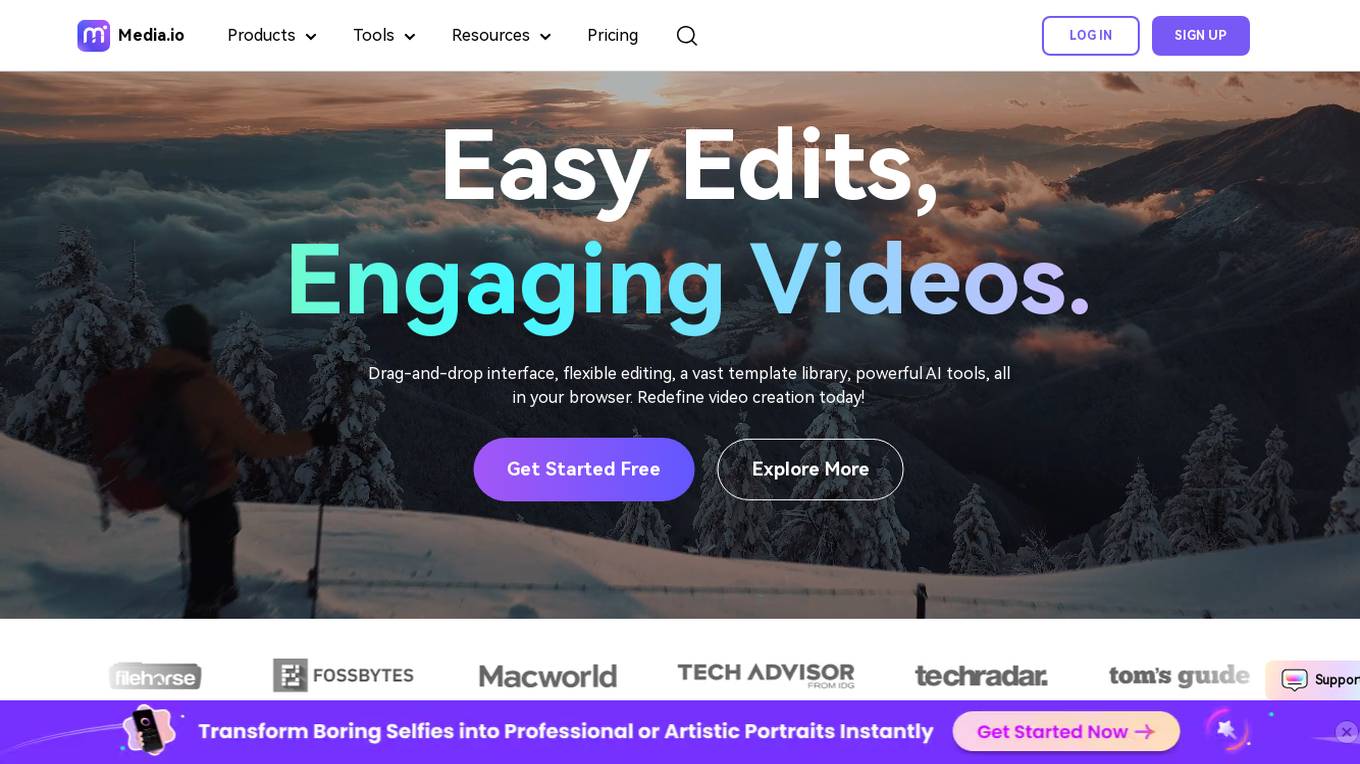
Media.io
Media.io is an online platform offering a wide range of AI tools for video, audio, and image editing. Users can easily enhance their creative projects with features like AI Portrait Generator, AI Video Generator, Video Editor, Image Enhancer, and more. The platform provides a drag-and-drop interface, flexible editing options, a vast template library, and powerful AI tools, all accessible directly from the browser. Media.io aims to redefine video creation by providing smart editing solutions for creators in various fields such as business, marketing, social media, and entertainment.
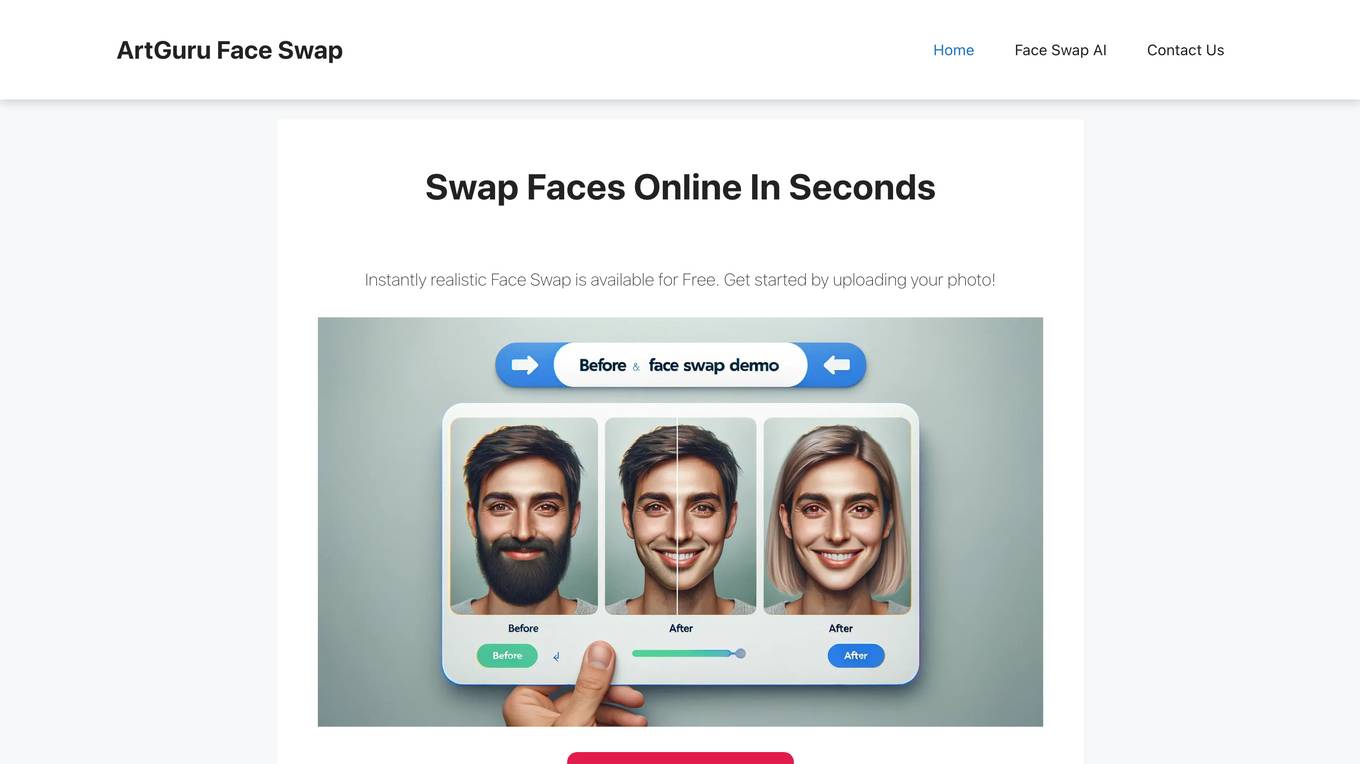
ArtGuru Face Swap
ArtGuru Face Swap is a free, AI-powered tool for seamlessly swapping faces in photos. With its user-friendly interface and advanced technology, users can create fun, quirky, or professional images in seconds. The tool is perfect for social media content creators, graphic designers, marketers, educators, and anyone looking to add a creative twist to their photos.
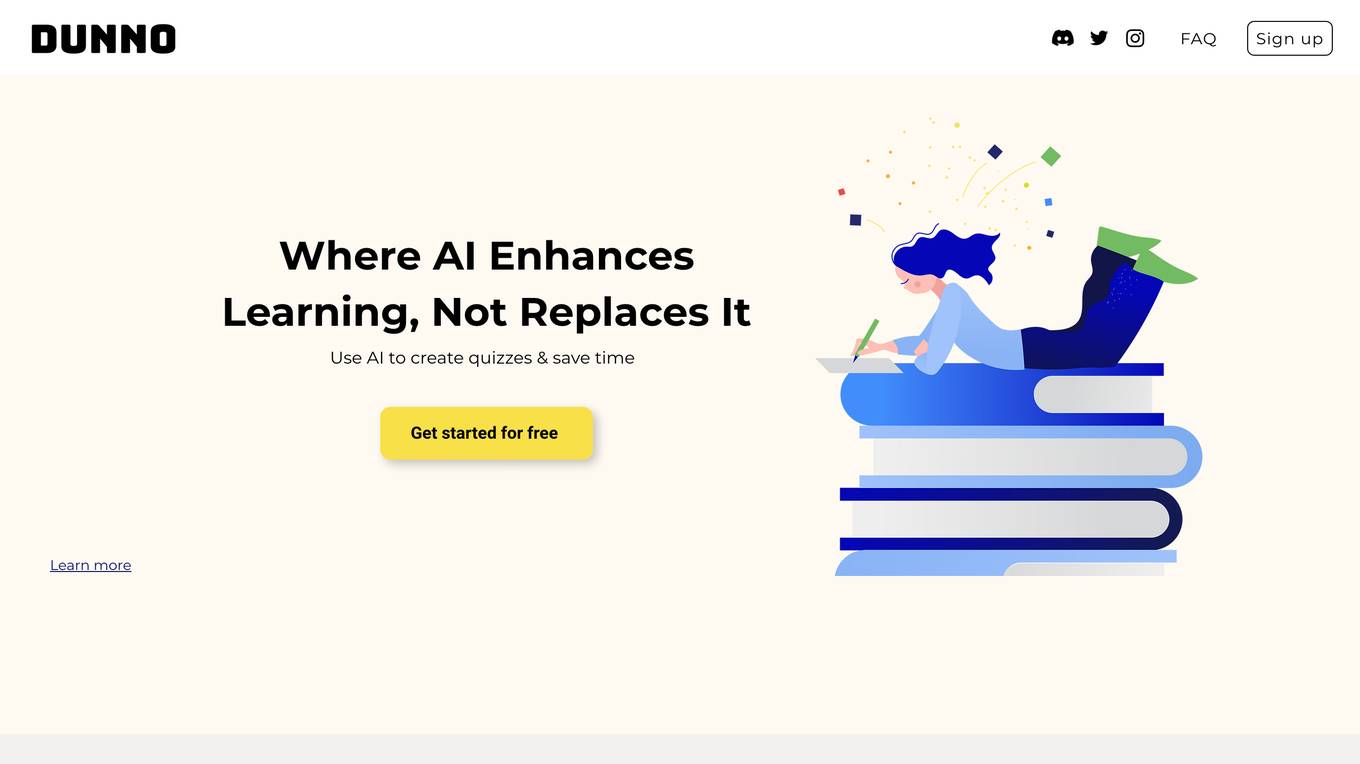
DUNNO
DUNNO is an AI-powered quiz platform that uses GPT-based models to generate quizzes and intellectual games. With DUNNO, you can quickly create your own quizzes based on any text, topic, or personal notes. After creating a quiz, you can either play alone or invite friends. DUNNO is suitable for various scenarios, including learning, work, and entertainment. It offers features such as quiz creation, quiz results tracking, and multiple game modes to make learning more engaging and interactive.
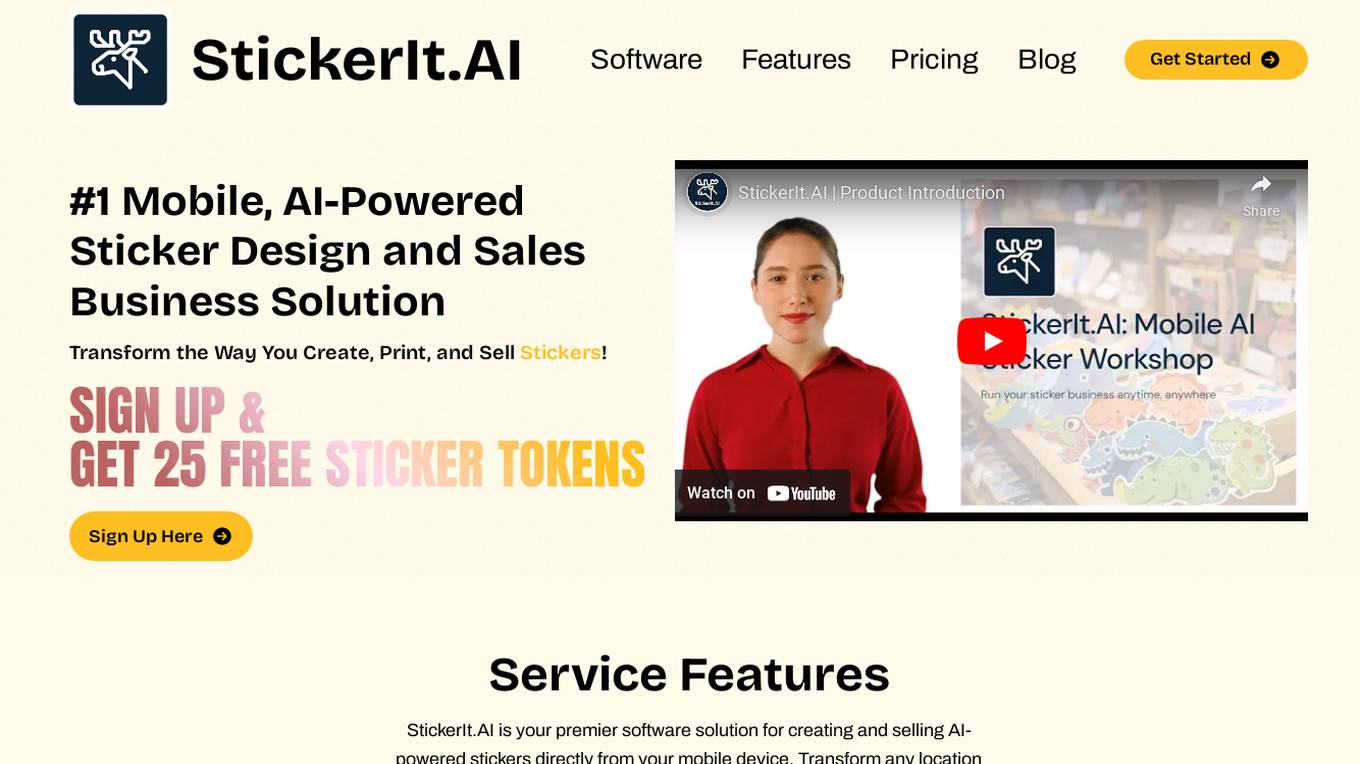
StickerIt.AI
StickerIt.AI is a premier software solution for creating and selling AI-powered stickers directly from your mobile device. The platform allows users to transform any location into a vibrant sticker shop with just two tablets and a printer. StickerIt.AI offers features such as instant AI sticker generation, live sticker design with text-to-image AI technology, pay-as-you-go flexible sticker token purchase plans, and more. The application serves entrepreneurs, freelancers, retail store owners, event organizers, school educators, and sticker professionals, providing them with high-quality, personalized sticker-making experiences and innovative revenue strategies.
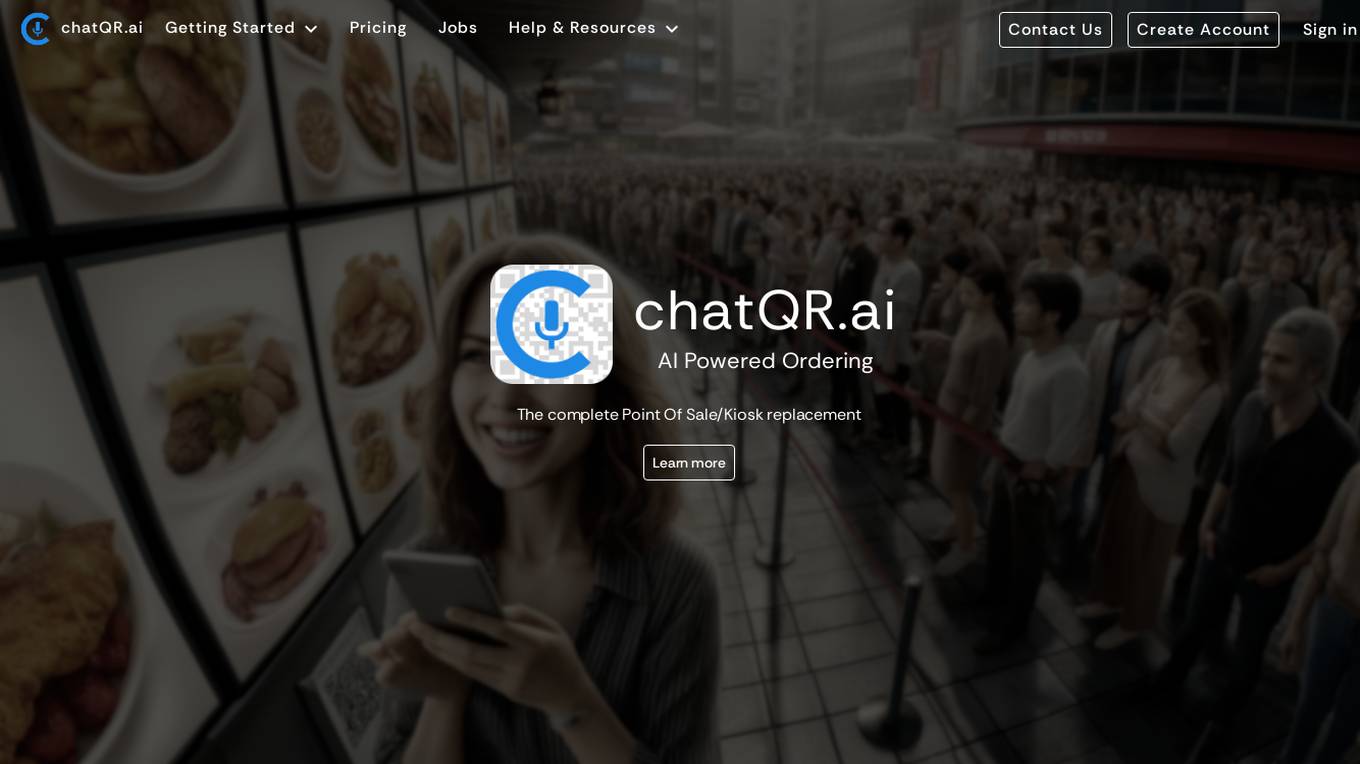
chatQR.ai
chatQR.ai is an AI-powered ordering application that serves as a complete Point Of Sale/Kiosk replacement. It utilizes voice recognition technology combined with the latest Large Language Model (LLM) AI to create a seamless QR code ordering experience for customers. The system is designed to be AI-first, offering mature point of sale features and the ability to integrate the ChatQR Voice Assistant into existing systems. With support for multiple currencies and payment providers like Stripe and Square, chatQR.ai aims to revolutionize the way businesses manage orders and payments.
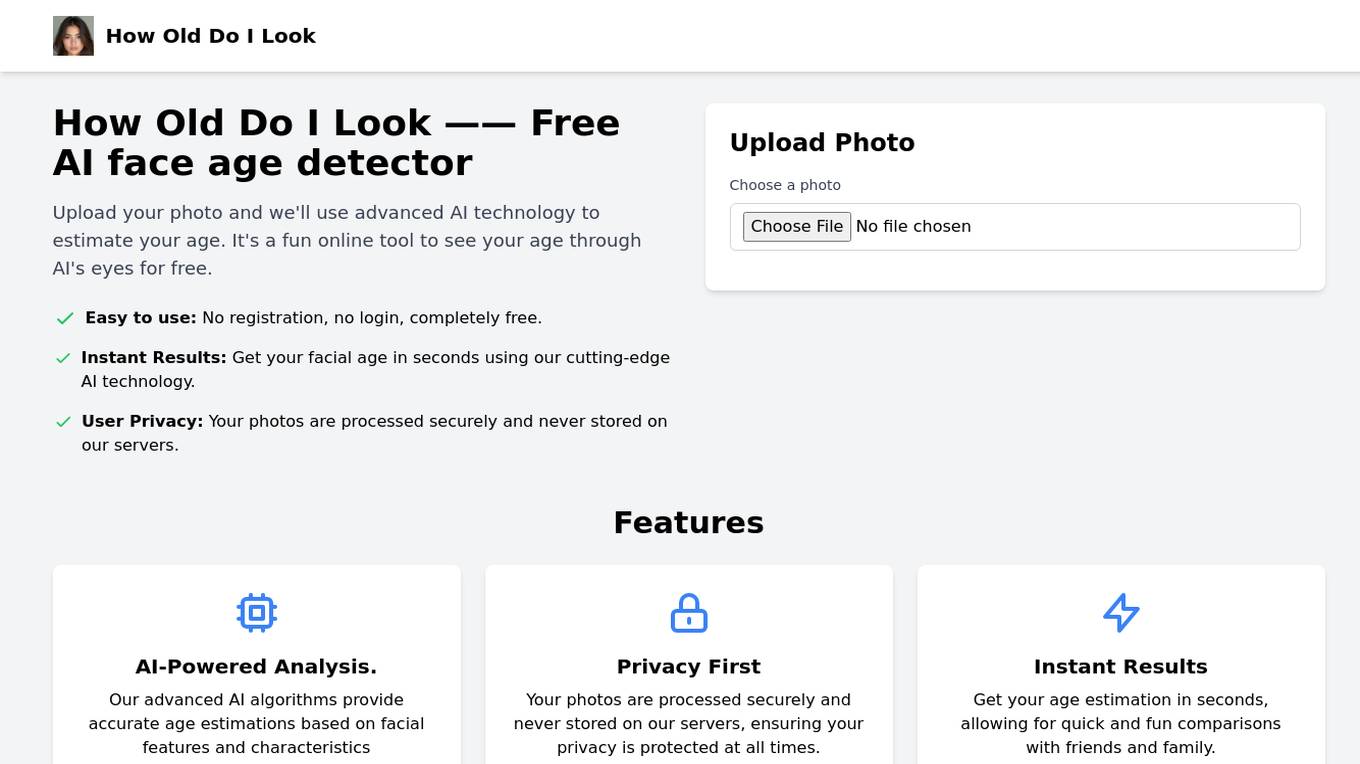
How Old Do I Look
How Old Do I Look is a free online AI face age detector that utilizes advanced AI technology to estimate the age of a person based on their uploaded photo. Users can easily upload a photo without the need for registration or login, ensuring a quick and fun experience. The tool provides instant results by analyzing facial features and characteristics through AI-powered algorithms. User privacy is prioritized as photos are securely processed and not stored on the servers. How Old Do I Look offers a unique way to see one's age through the eyes of AI, allowing for entertaining comparisons with friends and family.
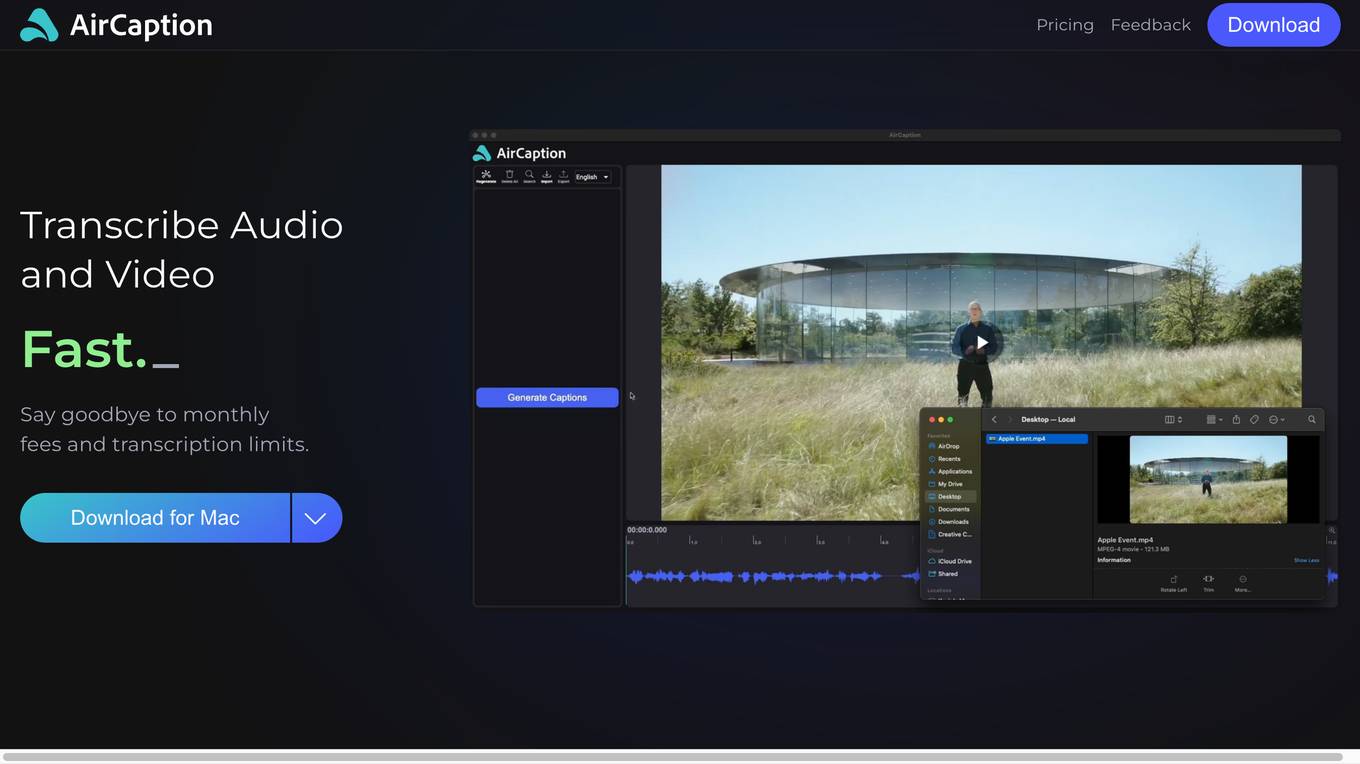
AirCaption
AirCaption is an AI-powered speech to text transcription tool that enables users to transcribe audio and video content quickly and efficiently. It offers the ability to generate AI captions, review and edit them, and export caption files in up to 60 languages. The application works offline, ensuring privacy by keeping media and captions on the user's computer. AirCaption is suitable for various professionals such as video editors, podcasters, language learners, legal professionals, marketers, researchers, event organizers, online course creators, and journalists.
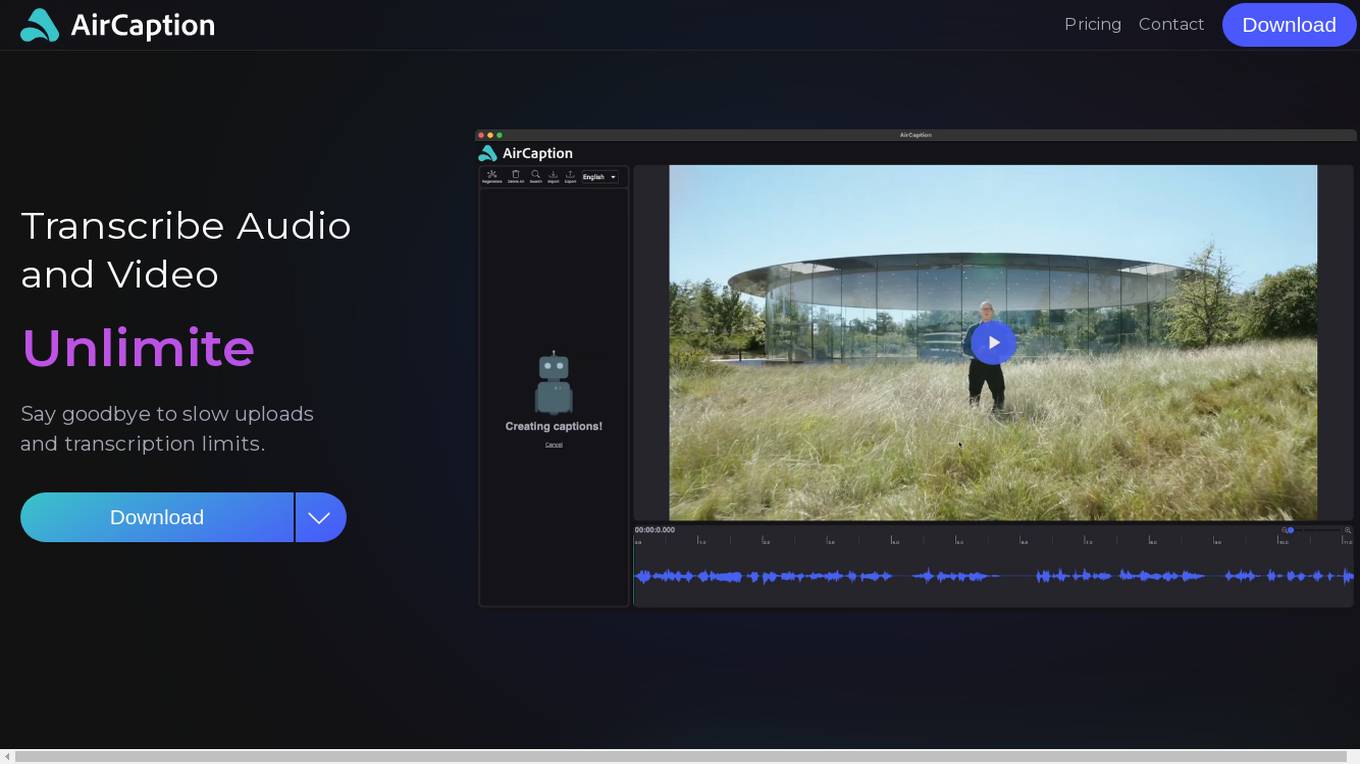
AirCaption
AirCaption is an AI-powered speech-to-text transcription tool that allows users to transcribe audio and video files efficiently. It offers features such as generating AI captions, editing text and timing, subtitle video in multiple languages, and works offline for privacy. The application caters to a wide range of users, including video editors, podcasters, language learners, legal professionals, marketers, researchers, event organizers, online course creators, and journalists. AirCaption provides a seamless transcription experience with the latest AI models from OpenAI, ensuring accurate and fast results.

Alt Cortex
Alt Cortex is an AI-powered news aggregation tool designed to help users curate, organize, summarize, and share content effortlessly. It leverages advanced technologies like vector search and OpenAI to provide users with relevant and concise insights. With features such as source control, automated updates, semantic categorization, intelligent summaries, and various sharing options, Alt Cortex aims to enhance user engagement and content clarity. The platform caters to a wide range of industries and purposes, offering solutions for content creators, educators, e-commerce sites, news outlets, corporate knowledge hubs, event organizers, nonprofits, health coaches, travel bloggers, real estate platforms, financial advisors, food bloggers, and more.

PartyPlanner.ai
PartyPlanner.ai is the ultimate party planning tool designed to assist busy hosts in effortlessly planning and organizing memorable events. With AI assistance, users can easily categorize events, select themes or styles, determine the number of guests, choose locations, and kickstart their party plans. The platform offers a Party Planning Playbook that includes tips, tricks, and must-haves for any successful party. Additionally, users can explore party favorites, purchase party essentials on sale, and access a variety of products such as glitter, sound systems, personalized kegs of beer, and more. PartyPlanner.ai aims to streamline the party planning process and ensure that every event is a success.
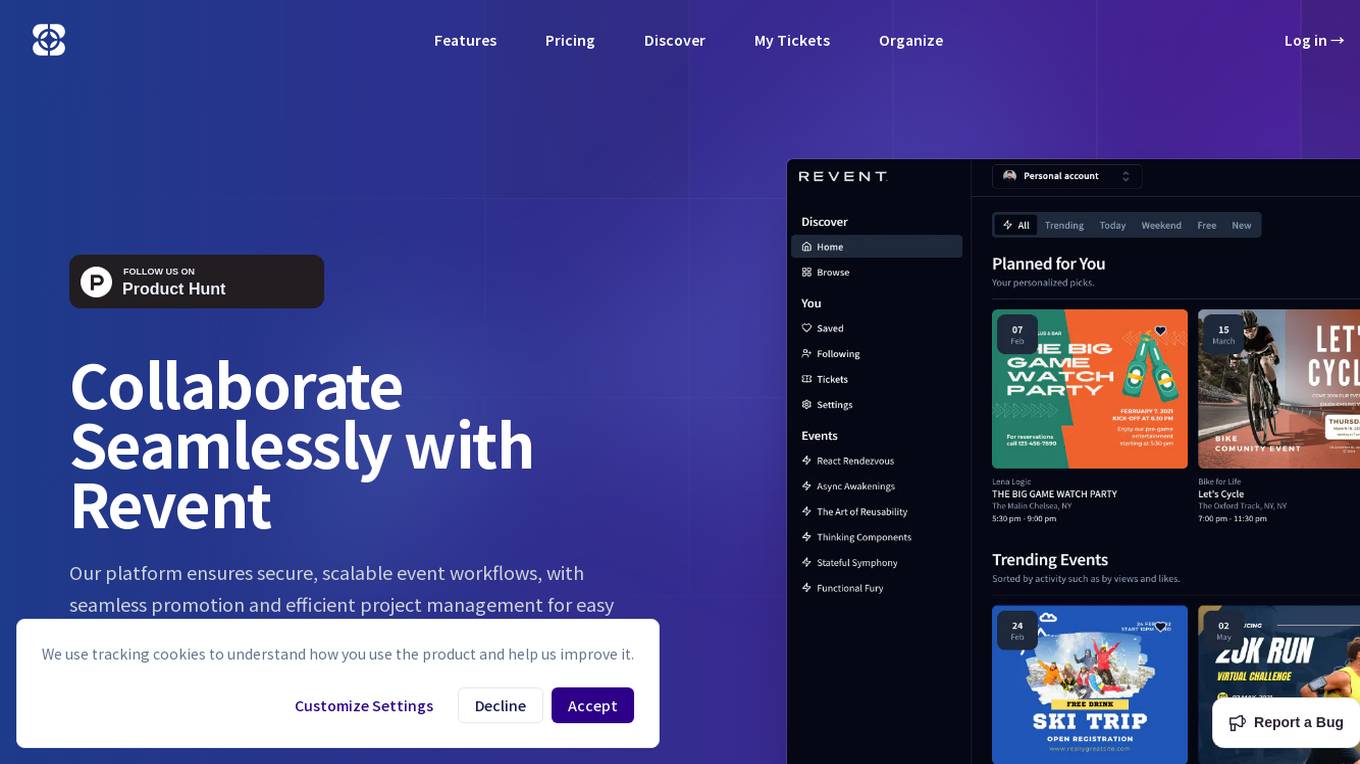
Revent
Revent is an event planning platform that helps users organize, promote, and manage their events. It offers a suite of features to help users with every aspect of event planning, from finding the right venue to managing guest lists and tracking RSVPs. Revent also offers a unique AI-powered assistant, Eva, who can help users with a variety of tasks, such as finding vendors, creating event timelines, and answering questions.
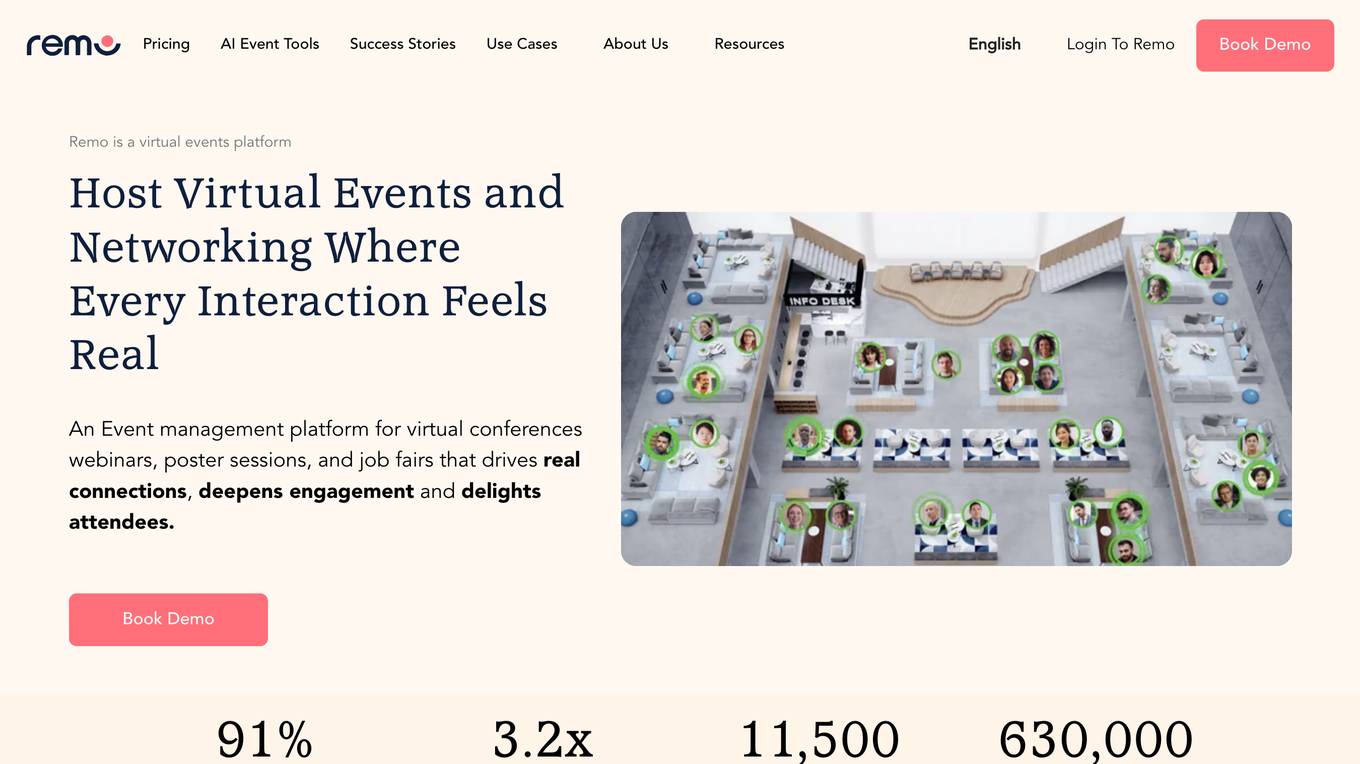
Remo
Remo is an all-in-one online event solution that allows users to host immersive virtual events with real connections and engagement. The platform offers a wide range of features such as virtual event networking, webinar presentations, attendee experiences, event planning tools, AI matchmaking, registration and ticketing solutions, analytics and integrations. Remo aims to transform boring virtual meetings into real-life events by providing a visually stunning and interactive platform for hosting various types of virtual events. Trusted by over 1000 organizations worldwide, Remo offers simple and affordable pricing for every event, with impactful features that help users create engaging and memorable virtual experiences.
0 - Open Source Tools
20 - OpenAI Gpts

Accio Answers
Enter the wizarding world's ultimate test of knowledge with our Harry Potter Trivia Challenge, where only the truest fans dare to unravel the most obscure spells, unravel mysteries, and emerge as the undisputed Hogwarts trivia champion.
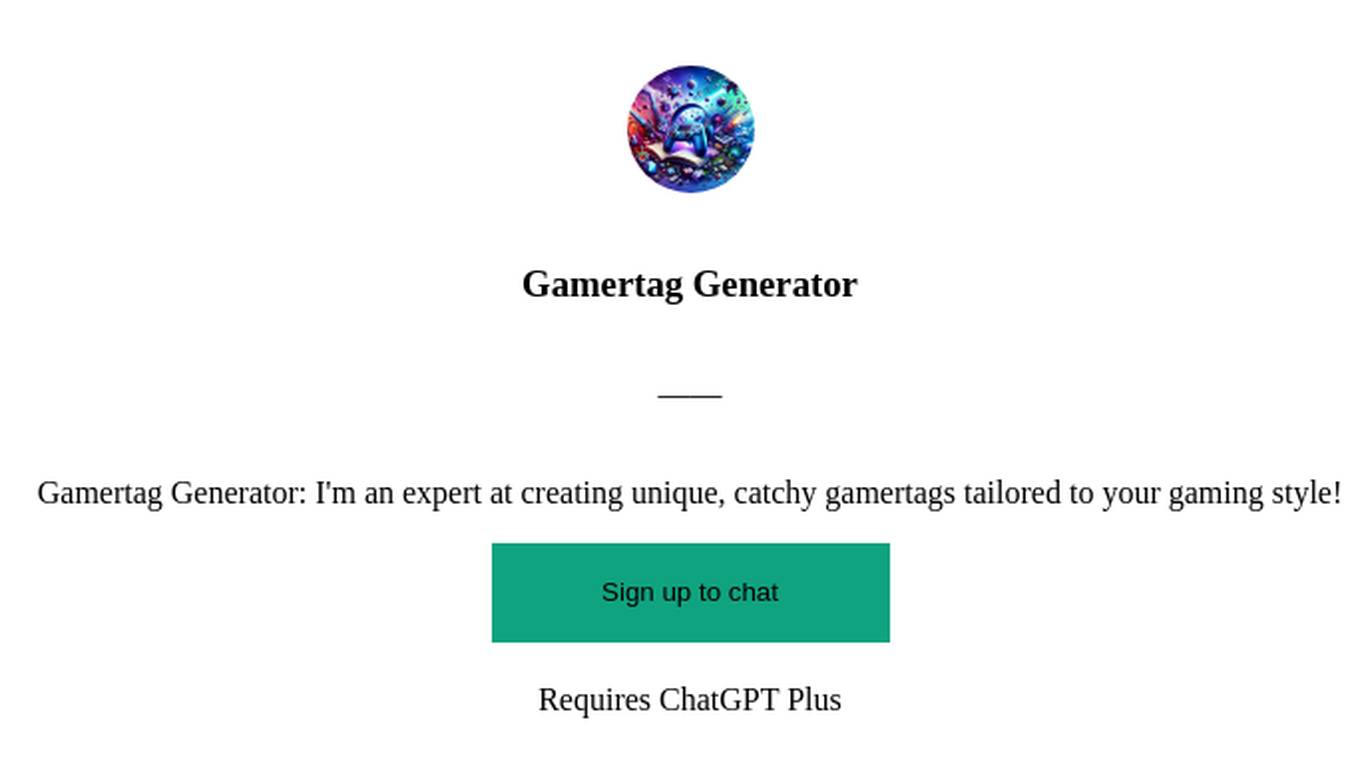
Gamertag Generator
Gamertag Generator: I'm an expert at creating unique, catchy gamertags tailored to your gaming style!

Organizer Grandma
A wise, warm GPT with skills in organizing, like a doting grandma. Just send a pic



